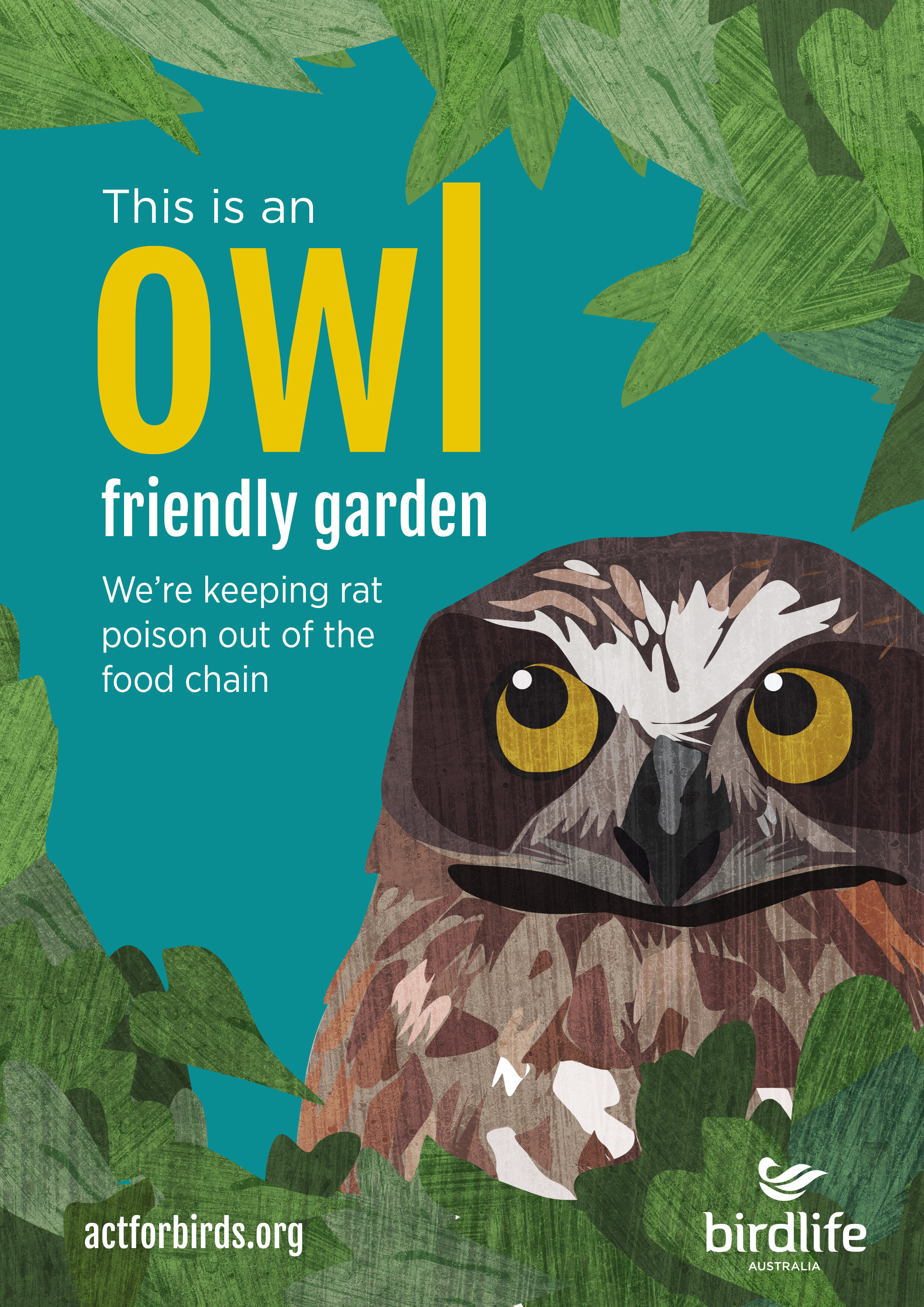How can you help owls and other birds of prey?
Owls, kites and other birds of prey are dying from eating rats and mice that have ingested Second Generation rodent poisons.
These household products – including Talon, Fast Action RatSak and The Big Cheese Fast Action brand rat and mice bait – have been banned from general public sale in the US, Canada and EU, but are available to purchase from supermarkets and retailers throughout Australia.
Sign our petition and stay informed about the campaign.
There are lots of ways to minimise your need for rodenticides. Which of these bird-friendly changes can you commit to?
Make your house and garden less friendly for rodents:
seal potential roof/wall cavity access points that rodents might be using
pick up any fallen fruit,
ensure excess pet food isn’t accessible,
rodent-proof chook pens and aviaries,
replace rat-friendly palms with owl-friendly natives, and
tidy up garden waste and limit access to compost heaps
Encourage native predators:
plant native trees, and
install nest boxes for owls to breed in.
Reduce dependence on poison baits:
consider other, non-poison pest control, like snap traps,
only put out baits when you actually need to,
read the labels on any poisons you buy and make the change to alternatives.
Click here to learn what to buy and what not to buy.leave second generation anticoagulant rodenticides (SGARs) on the shelf.
Encourage others to join you:
Please asks your friends, family and neighbours to join the campaign.
Download and print your Owl Friendly Garden poster and put it in your front window or fence to show that your garden is poison free and a safe haven for birds.
Return to Rat Poisons Homepage

